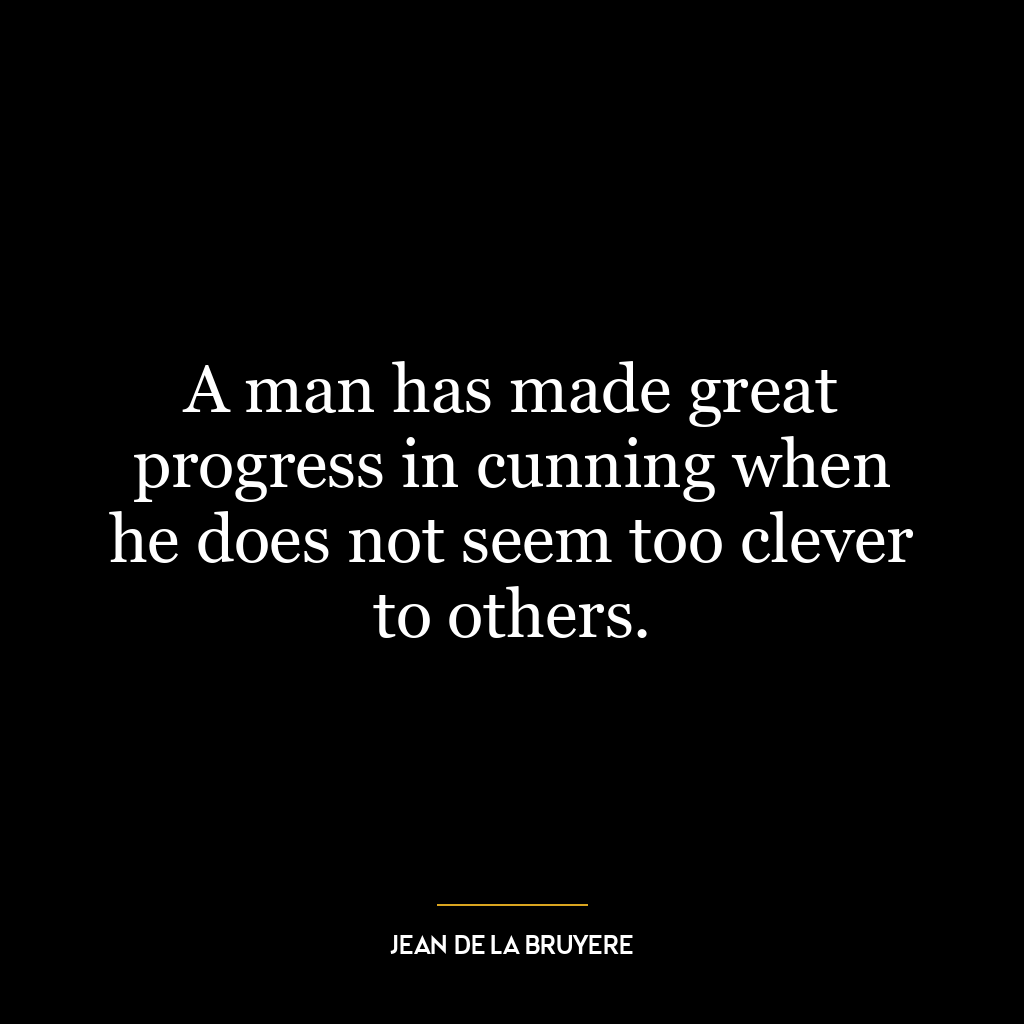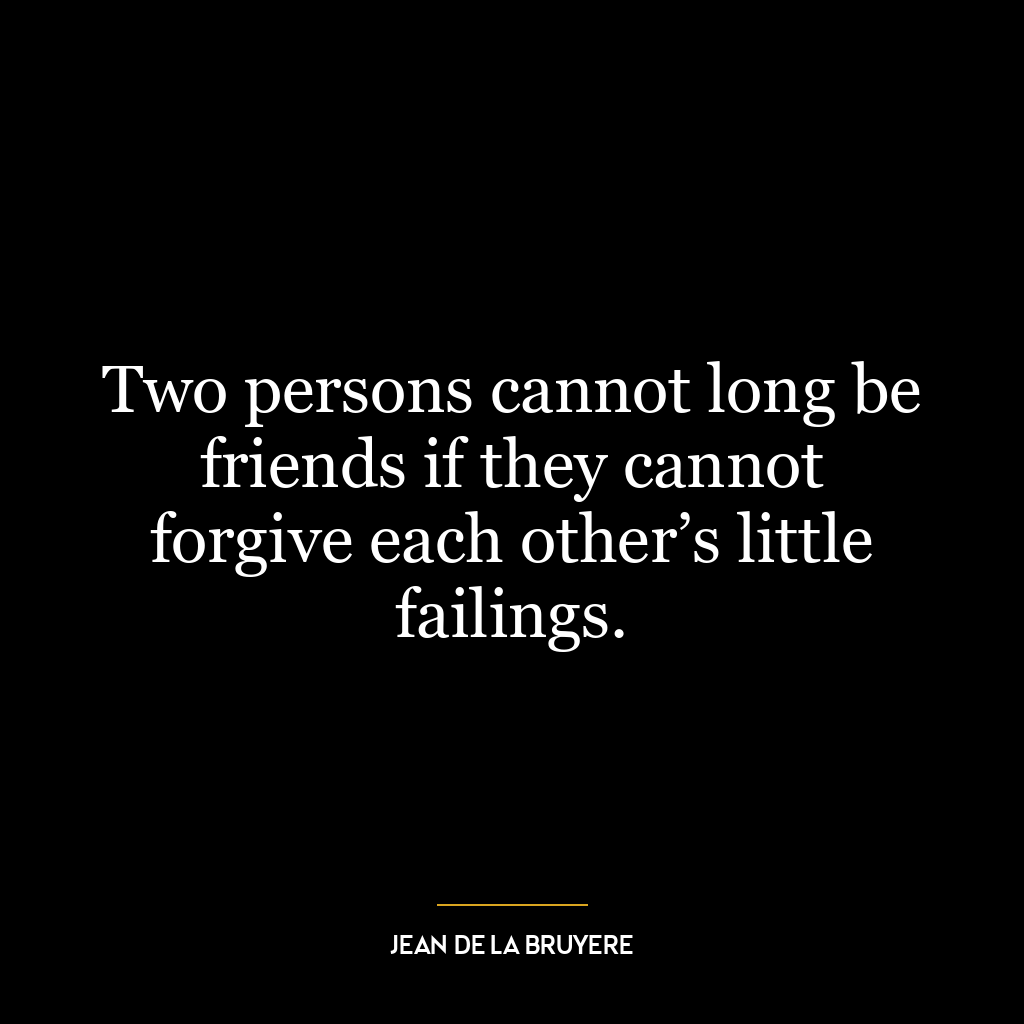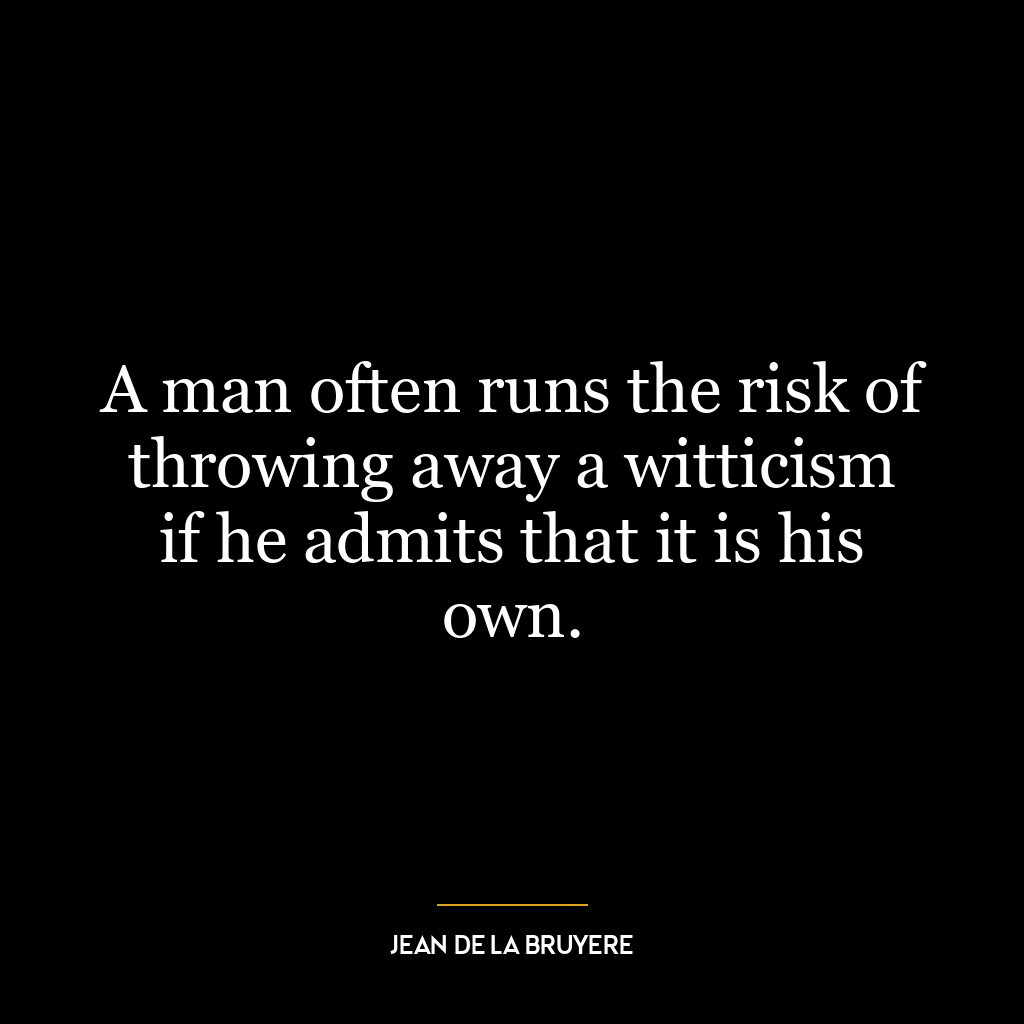If any man thinks ill of you, do not be angry with him, for you are worse than he thinks you to be.
This quote is a profound reflection on self-awareness, humility, and personal growth. It suggests that if someone thinks negatively of you, instead of reacting with anger or defensiveness, it might be more beneficial to consider their perspective as an opportunity for introspection and self-improvement. The phrase “for you are worse than he thinks you to be” doesn’t necessarily mean that one is inherently bad or flawed; rather it’s an encouragement to acknowledge our own imperfections and areas where we can grow.
The quote also promotes empathy towards others’ perspectives. It reminds us that people’s opinions are often based on their own experiences and perceptions which may not always align with ours. Instead of dismissing these opinions outrightly due to ego or pride, we should take them into account as they could offer valuable insights about ourselves that we might have missed.
In today’s world, this idea is particularly relevant in both personal development and social interactions. In a society where image often takes precedence over substance, it can be easy to get defensive when our image is threatened by negative perceptions. However, embracing this quote would mean using such situations as catalysts for personal growth rather than sources of conflict.
For instance, in the workplace if a colleague criticizes your performance instead of taking offense you could use this feedback for improvement – perhaps there are indeed areas where your work could improve which you weren’t aware of before the criticism was made.
Similarly in personal relationships if a friend points out certain negative traits instead of getting angry at them for ‘judging’ you could reflect upon yourself – maybe there are indeed aspects about your personality or behavior which aren’t very pleasant but have gone unnoticed by you until now.
Ultimately the message here is one promoting constant self-improvement humility understanding towards differing perspectives and resilience against unflattering judgments – all crucial elements in becoming better individuals professionally personally socially emotionally and even morally.









